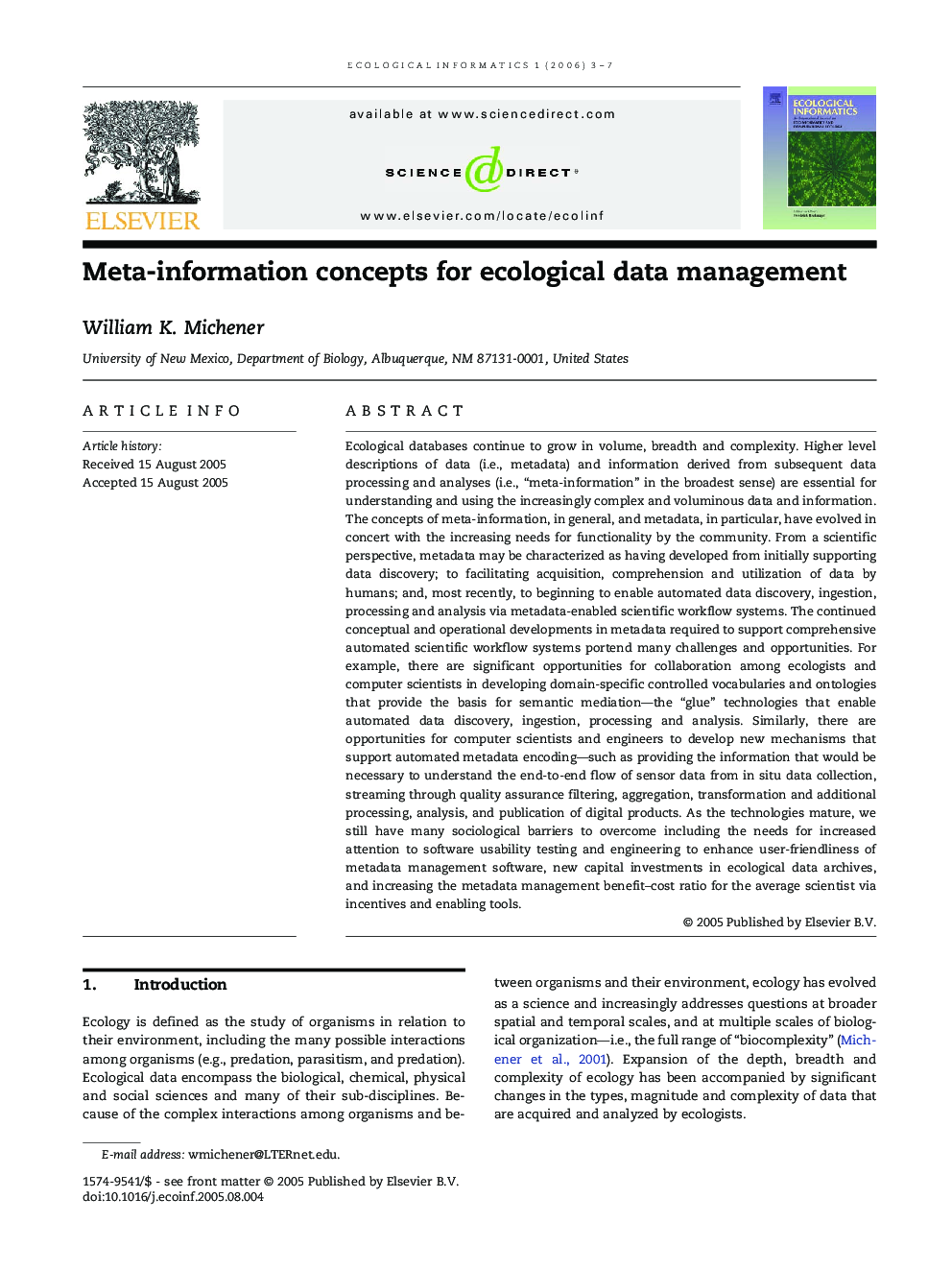| Article ID | Journal | Published Year | Pages | File Type |
|---|---|---|---|---|
| 4375438 | Ecological Informatics | 2006 | 5 Pages |
Abstract
Ecological databases continue to grow in volume, breadth and complexity. Higher level descriptions of data (i.e., metadata) and information derived from subsequent data processing and analyses (i.e., “meta-information” in the broadest sense) are essential for understanding and using the increasingly complex and voluminous data and information. The concepts of meta-information, in general, and metadata, in particular, have evolved in concert with the increasing needs for functionality by the community. From a scientific perspective, metadata may be characterized as having developed from initially supporting data discovery; to facilitating acquisition, comprehension and utilization of data by humans; and, most recently, to beginning to enable automated data discovery, ingestion, processing and analysis via metadata-enabled scientific workflow systems. The continued conceptual and operational developments in metadata required to support comprehensive automated scientific workflow systems portend many challenges and opportunities. For example, there are significant opportunities for collaboration among ecologists and computer scientists in developing domain-specific controlled vocabularies and ontologies that provide the basis for semantic mediation-the “glue” technologies that enable automated data discovery, ingestion, processing and analysis. Similarly, there are opportunities for computer scientists and engineers to develop new mechanisms that support automated metadata encoding-such as providing the information that would be necessary to understand the end-to-end flow of sensor data from in situ data collection, streaming through quality assurance filtering, aggregation, transformation and additional processing, analysis, and publication of digital products. As the technologies mature, we still have many sociological barriers to overcome including the needs for increased attention to software usability testing and engineering to enhance user-friendliness of metadata management software, new capital investments in ecological data archives, and increasing the metadata management benefit-cost ratio for the average scientist via incentives and enabling tools.
Related Topics
Life Sciences
Agricultural and Biological Sciences
Ecology, Evolution, Behavior and Systematics
Authors
William K. Michener,
